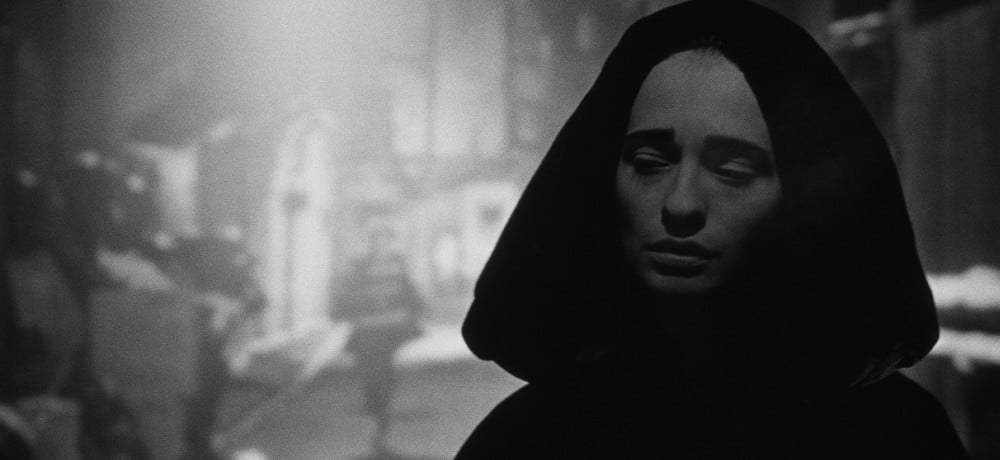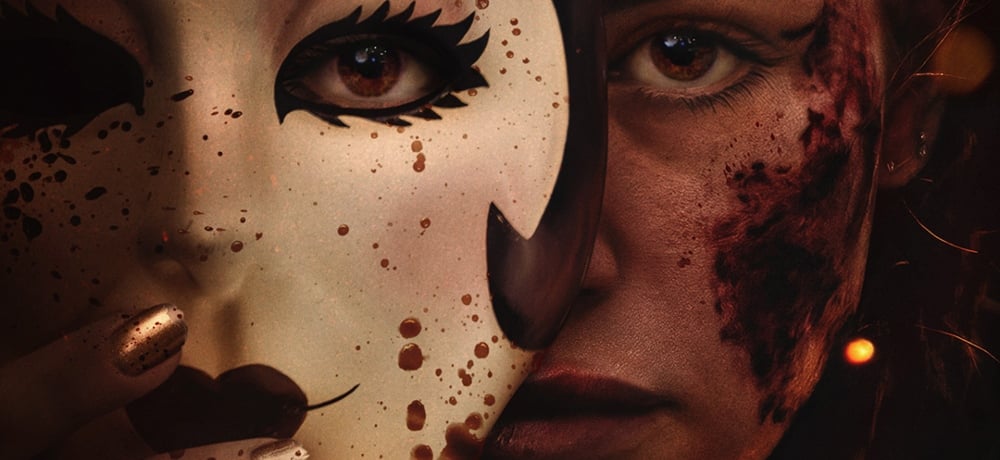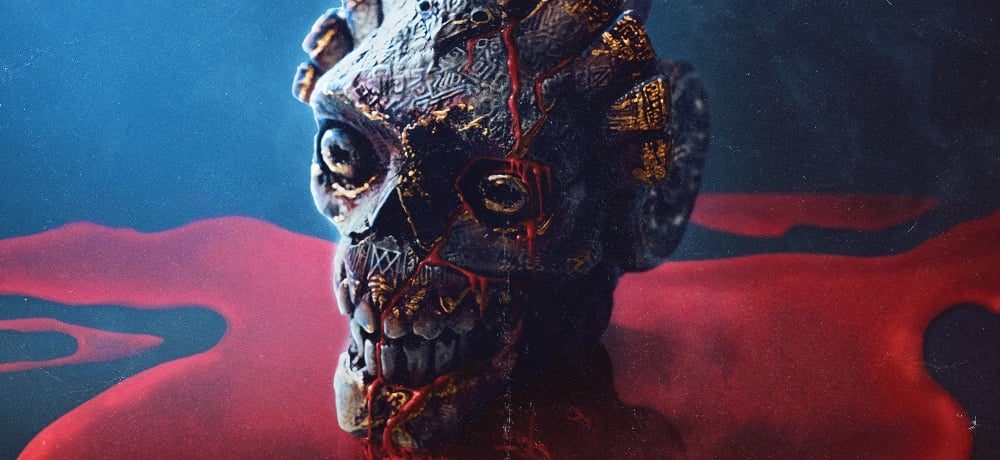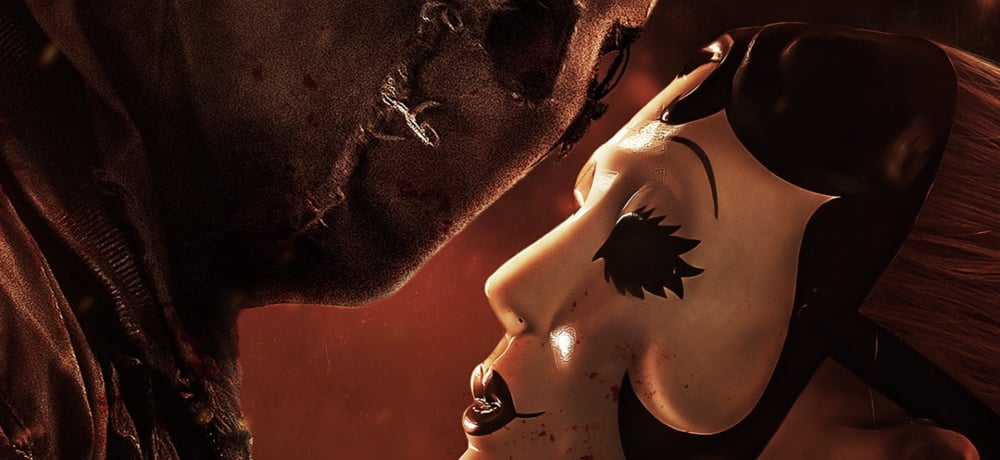





Throughout his career, filmmaker Ben Wheatley has always taken chances as a storyteller, and his latest movie, High-Rise, may be his boldest and most ambitious work to date. The film stars Tom Hiddleston, Jeremy Irons, Sienna Miller, Luke Evans, and many more as the residents of an idyllic apartment complex that promises its inhabitants a self-sustaining existence, but only results in destruction and madness once humanity’s inherent selfish nature consumes them all. A blistering and darkly comedic social satire, High-Rise is a not-to-be-missed affair arriving on VOD April 28th and in theaters on May 13th.
Daily Dead recently had the chance to speak with Wheatley at the press day for High-Rise, and during our interview we discussed the approach to adapting J.G. Ballard’s 1975 novel, his experiences collaborating with a stellar cast, and much more.
Congrats on the film, Ben. I want to start by talking about working with Amy Jump all these years and the overall approach you guys had in adapting the material for High-Rise. Are there challenges that come with adapting material that already exists versus a script she would come up with organically?
Ben Wheatley: Obviously we had this idea for it, not an amazingly original idea, but it was that we wanted to make this as close to the book as possible. It's not a case of just grabbing the title and then just hollowing out the book and doing what we want, which seems to happen quite a lot in book adaptations. What that means is that there's a narrative movement in the book which is really difficult to achieve in cinema, and that pushes you into positions that you wouldn't normally go, and if you did go there in your own work you could get out of them really easily just by scrubbing them. We were determined not to do that.
Not to say that I had anything to do with the writing of the script either; that’s not the way Amy and I work. From what she has said to me about how she approached it, she had issues with the fact that there wasn't a lot of dialogue in the book, so that all had to be created. I liked it because it was difficult and it made us think in a non-traditional way in terms of what the structure of the story was. Like I said, this wasn’t a place we would have gone to under our own accord.
This is definitely a story about class struggle, but what is interesting is that even though it was written over 30 years ago, it’s still very relevant to what’s happening in the world right now.
Ben Wheatley: Yeah, that's what I thought about it when I reread it. That's one of the advantages of writing predictive fiction, isn't it? He's not writing a book about his love affairs with students at the university he teaches at, which a lot of his contemporaries would have been writing around that period, and that stuff was all horribly dated within ten years. It’s just impressive that he gets so much of it right, but I also think that's the problem; he's seeing our future—our reality now—quite clearly, but no one else paid much attention.
This is a film that takes place largely within one location, albeit a huge space that compliments the tone of the material so nicely. But when you're working on a film that is mostly contained, is there a challenge visually in keeping those spaces interesting for viewers?
Ben Wheatley: The reality of any film is to not be reductive, but most films are sets of scenes of people talking in rooms joined by shots of cars turning up at houses, then people getting out or people driving along, and then action scenes. That can also get repetitive. But the claustrophobia of the space that has this adjoining design sense to it on this movie is something else. But that's one of the things that pulls you through a movie, the different environments that you get caught up in. It's a lot to do with trying not to let the audience get tired. Your eyes get tired if you don’t take them to different spaces once in a while.
And the building in Northern Ireland; we had been up and down the UK, but we couldn't find anything. We eventually found this sports center in Bangor; it's a seaside town in northern Ireland, and the building was built in 1973. It had never been refurbished or anything, so it was exactly the same as the day it was built, basically. It had been left empty, so we could use it as our studio, too.
We had our offices in there and the swimming pool, squash courts, and the gym we used were all in there. Then in the main sports area—which has a double-story height—we built all the apartment sets and the corridor sets. Then we had another location, which was a ferry terminal in Belfast, and that's where we built another apartment set with the upstairs and downstairs, and we built the entrance area there.
Everything you've done has always been ambitious, but it seems like the scope of High-Rise was a lot bigger for you comparatively.
Ben Wheatley: It's the first time we've had a sizable art department and we've been able to build sets, so that was a massive treat. It was also the first time I could control the frame, too, in terms of the color of rooms and the set design, and it was also the first time we've had enough money to just move the camera around properly. It's really the first time that I've had a full deck of cards. The other movies, not that it was detrimental to the other films that we've made, but they were always designed to be shot in a certain way because of the budget they had. That's why a lot of them are handheld or something like A Field in England, which is something we did only with available light. So High-Rise was a real treat.
Tom Hiddleston is largely known for his work on the Marvel movies, or from Crimson Peak if you’re a horror fan. But one thing that really struck me after watching this was how timeless he is. There aren’t a lot of actors you can throw into different time periods and have them work well. But he really does and I’m guessing his involvement was huge for this project.
Ben Wheatley: Initially, he got the film made because he agreed to do it. He was the first actor, and that was massive. As a creative partner, he's really obsessive in how much detail he puts into things on set. He could quote his lines really easily, but he was totally fretting over every choice that he made and was always completely concentrated on his work. Then, we edited it as we were making it, and he would come and see it every couple of days and talk about it. In a technical sense, you couldn't ask for more from an actor—just totally mono-focused on his role. He's quite a machine when it comes to acting.
Two other people I want to talk about that you used incredibly well are actors that don't get nearly enough appreciation: Sienna Miller and Luke Evans. I love Luke. I'm probably one of the few people out there that unabashedly loves No One Lives and while he’s great in that, it was amazing to see him get material here that pushed him in ways I don’t think we’ve seen from him before.
Ben Wheatley: Luke's performance was a marvel to watch. I had a similar experience coming to know who he was as I had with Tom. I'd seen Avengers and I had the same thought. I was just like, “Who's this guy? He's just so brilliant and completely out of nowhere.” I had the same thing with The Hobbit as well, I saw Luke and I thought, “Now, who's this guy?”
And so I met him and just chatted with him and I could see there was an edge to him. He's very charming and he's a lovely guy, yet he's very fiery as well. I could see that all I needed to do was let him loose on this script. It was a no-brainer to work with him and I was really lucky that he said “yes.” This was a different choice for him, and he just knocked it out of the park. It was phenomenal.
With Sienna, I had really enjoyed her stuff since seeing her in Factory Girl. I saw that for the first time and I watched the whole movie and didn't realize it was her until it was over. Then I saw her in The Girl as well, and I thought it was fucking brilliant. There are actors that are great on-screen, and there are actors that give you lots of different choices. But then, there are people like her, with this amazing timing that feels perfect in that moment. I thought she was terrific.